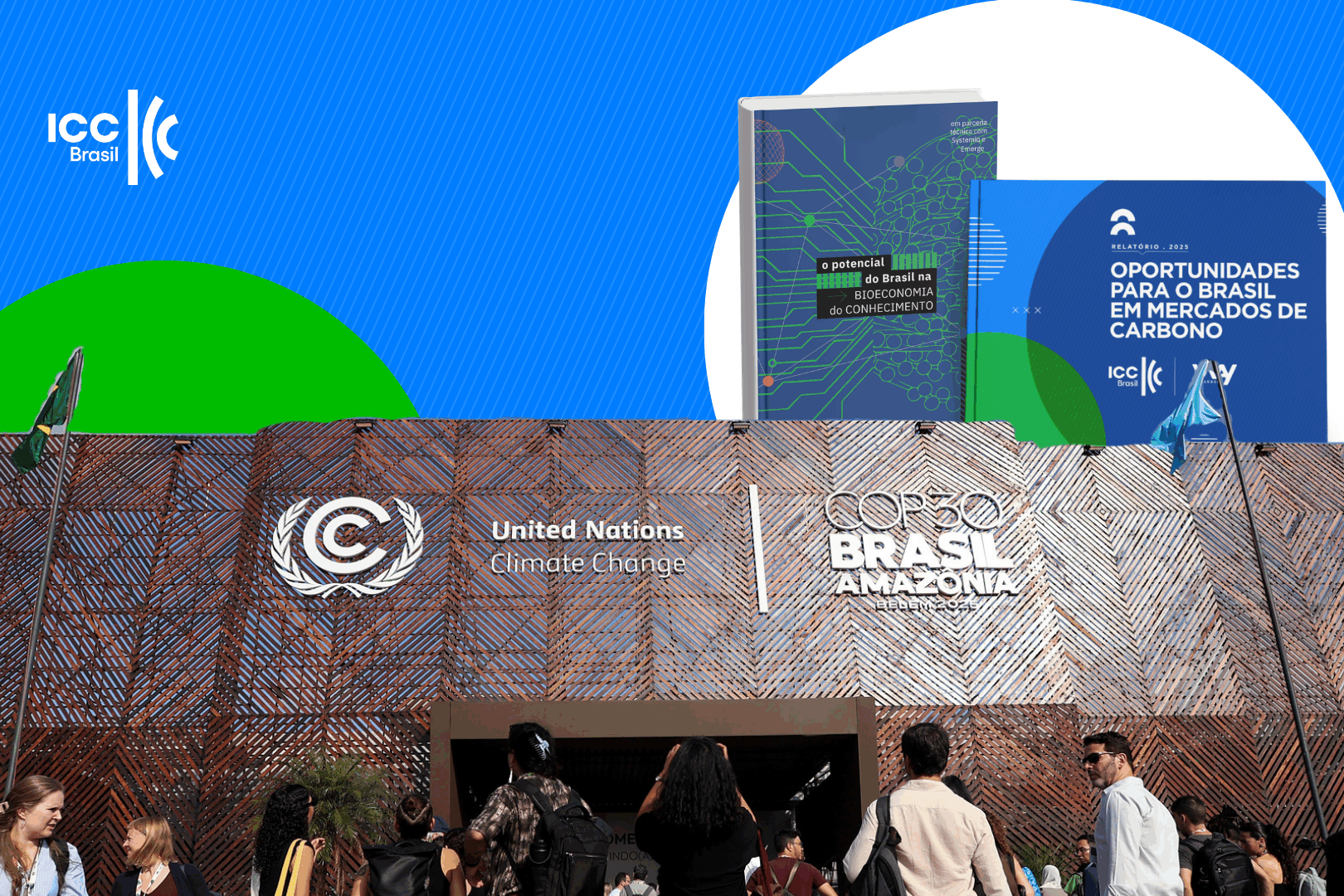ICC Brasil participated in COP30, in Belém, with the launch of two groundbreaking studies that reinforce Brazil’s role as a key player in building a more competitive, inclusive and sustainable economy. The publications examine the country’s potential in the knowledge-based bioeconomy and in carbon markets—both strategic areas for this decade’s climate transition.
The Potential of Brazil in the Knowledge-Based Bioeconomy: up to USD 140 billion in additional value by 2032
The study The Potential of Brazil in the Knowledge-Based Bioeconomy, developed by ICC Brasil in technical partnership with Systemiq and Emerge, and with institutional support from the National Secretariat for Bioeconomy of the Ministry of the Environment and Climate Change, shows how Brazil can transform its biodiversity into a driver of innovation and sustainable development.
By analyzing five strategic sectors—food, health, materials, cosmetics and agribusiness—the study estimates that the knowledge-based bioeconomy could generate between USD 100 and 140 billion by 2032, driven by high-value-added products and solutions based on science, technology and traditional knowledge.
With contributions from more than 100 experts, the publication offers recommendations to position Brazil as a global leader in this agenda, including a new integrated financial architecture, incentives for scientific and technological innovation, and the strengthening of sustainable value chains.
Access the full study in Portuguese and explore its key findings in the executive summary, or download the English version.
Opportunities for Brazil in Carbon Markets: domestic demand may grow up to 530% by 2030
In partnership with WayCarbon, ICC Brasil also launched the 4th edition of the study Opportunities for Brazil in Carbon Markets, offering an updated perspective on a rapidly evolving sector.
For the first time, the analysis focuses on the demand for carbon credits, deepening insights across three core pillars:
- international mechanisms under Article 6 of the Paris Agreement;
- the evolution of the Voluntary Carbon Market;
- and the implementation of the Brazilian Emissions Trading System (SBCE), expected to become the main driver of domestic demand by 2030.
The study projects that domestic demand for carbon credits may grow by up to 530% by 2030, driven by the SBCE. It also indicates that Brazil could emerge as a global leader in the supply of credits under Article 6, with the potential to represent around 33% of ITMOs traded by 2050.
The full set of materials from the 4th edition of Opportunities for Brazil in Carbon Markets is available in Portuguese and English:
Full report:
Fact sheet:
Executive summary:
ICC Brasil remains committed to ensuring that the findings of these studies inform public policies, business strategies and multisector partnerships, promoting a more prosperous and sustainable future for people and the planet.








